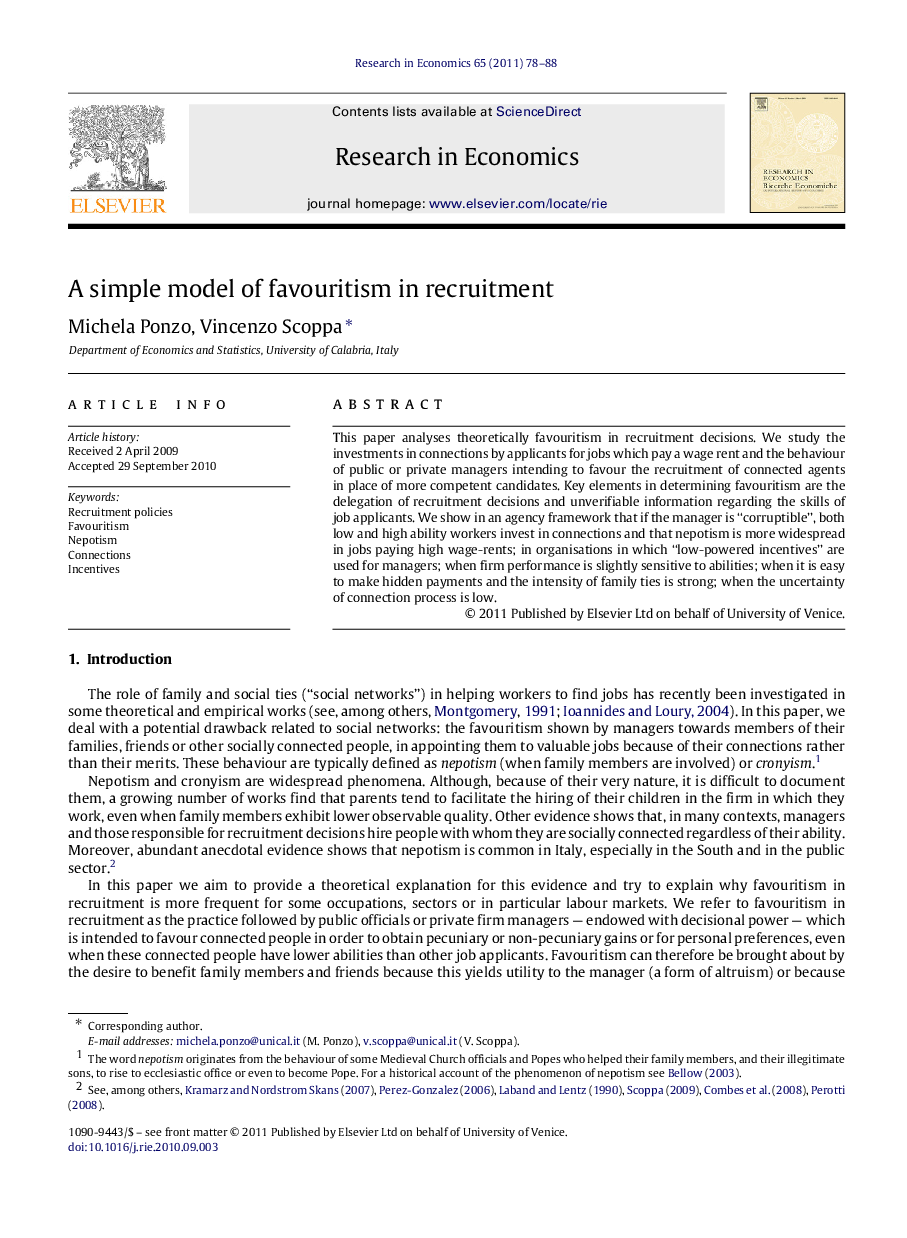| Article ID | Journal | Published Year | Pages | File Type |
|---|---|---|---|---|
| 984403 | Research in Economics | 2011 | 11 Pages |
This paper analyses theoretically favouritism in recruitment decisions. We study the investments in connections by applicants for jobs which pay a wage rent and the behaviour of public or private managers intending to favour the recruitment of connected agents in place of more competent candidates. Key elements in determining favouritism are the delegation of recruitment decisions and unverifiable information regarding the skills of job applicants. We show in an agency framework that if the manager is “corruptible”, both low and high ability workers invest in connections and that nepotism is more widespread in jobs paying high wage-rents; in organisations in which “low-powered incentives” are used for managers; when firm performance is slightly sensitive to abilities; when it is easy to make hidden payments and the intensity of family ties is strong; when the uncertainty of connection process is low.
Research highlights► This paper analyses theoretically favouritism in recruitment decisions. ► Key elements in favouritism are the delegation of recruitment decisions and unverifiable information regarding the skills of job applicants. ► If the manager is “corruptible”, both low and high ability workers invest in connections. ► Nepotism is more widespread in jobs paying high wage-rents; in organisations in which “low-powered incentives” are used for managers; when firm performance is slightly sensitive to abilities.
